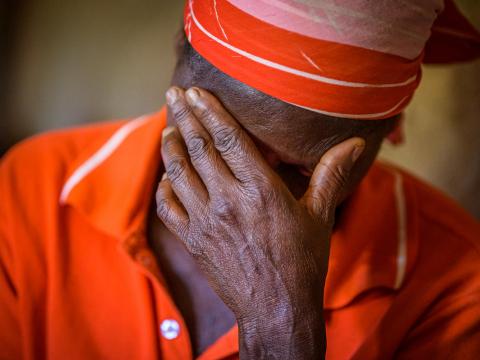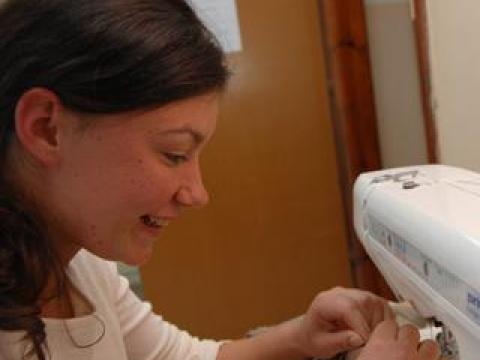
Where is God in all of this? Speaking truth to the highest power
By Reverend Christo Greyling
“This is too much! How do they expect us to deliver the same quality work with one deadline after the other while we have no face-to-face engagement with our teachers?” Frustration and stress turned into distress as my 17-year-old daughter stared at the many red deadlines on her school’s agenda.
Throughout the 12 months of COVID-19 lockdowns, she has remained focused, but that night the continued impact became too much for this normally rock-solid young adult.
My nephew, who serves multiple intensive care units in Cape Town, reported wearily last week that he had signed his fourth death certificate by 10:30 that morning.
The messages on my WhatsApp group from faith leaders in Africa lit up my phone during the morning:
- “Pray for us. Malawi has been severely hit by COVID-19. It is killing off our people.”
- “It is bad here in Zimbabwe too, many dying.”
- “I have just lost two close friends this morning.”
- “Do you know where we can request a food here in Kigali for our members living with HIV? They need food with their medications.”
- “It's really guerrilla war. We are fighting an invisible enemy.”
I have reflected on Charles Dickens’ words, written in 1859’s A Tale of Two Cities, many times over the past year. They speak to exactly what so many of us have experienced: “It was the best of times, it was the worst of times, it was the age of wisdom, it was the age of foolishness, it was the epoch of belief, it was the epoch of incredulity, it was the season of light, it was the season of darkness, it was the spring of hope, it was the winter of despair.”
Months ago, my family and I stood on our doorstep every week here in the Netherlands, to cheer and clap for the tireless work of medical staff, truck drivers and service workers. What was often unseen and uncelebrated was, and remains, the incredible contribution of faith leaders.
World Vision has been privileged to work alongside more than 124,000 local church and faith leaders as they counter myths and misinformation, and deliver theological messages of hope, self-efficacy and compassion, provide spiritual and emotional support, care for the sick and the orphaned, bury the dead and provide for the hungry. They were and continue to be beacons of hope. And their role is so important as the harsh impact of COVID-19, especially on children, is still unfolding.
I am also part of another WhatsApp group with hundreds of church and faith leaders who have been passionately sharing how they are responding to COVID-19 in their communities. My heart swelled as picture after picture, message after message, appeared from diverse contexts; from Pastor Jonathan in DRC to Pastor Peter in Sierra Leone, Rev Josephine in Kenya to Pastor Annie in Zambia. Each one offering life-saving messages in their communities.
However, while I feel refreshed hope with the increasing availability of vaccines, it is countered by new waves of distrust and fear-mongering. Emerging new strains of the virus lead to more lockdowns to prevent third and fourth waves of infections. Economic livelihoods are devastated. Children are increasingly vulnerable. Educational systems are severely broken. Vaccinations are not being allocated globally in a fair or equitable way. The list goes on…
The outburst of my own daughter and the increasingly desperate WhatsApp messages of my fellow faith leaders forced me to stop and think. Forced me to ask some hard questions, most especially: Where is God in all of this?
This question led me to reflect on a well-known Scripture passage in Genesis 18, in which God visits Abraham and informs him that He is about to destroy the cities of Sodom and Gomorrah because of their grievous sins. This scripture has been abused by some Christians to show that COVID-19 is a punishment from God on a sinful world. That, of course, is not at all the case, and it does not reflect the loving God I have got to know over many years of personal ups and downs, through Jesus who demonstrated God’s love for this world. The God I know is the one who mourns with those who mourn, and the one who is with us in the midst of this difficult time.
However, there is one verse from Genesis 18 which demands our attention at a time like this. It’s a verse that has caused historical – and personal, in my case – headaches in its translation. The majority of Bible translations translated Genesis 18 verse 22 as follows: "Then the men turned away from there and went toward Sodom, but Abraham still stood before the LORD" (Genesis 18:22, NKJV). However, The New Living Translation and a few others have dared to reflect the original intention of the Hebrew text, translating: “The two other men went on toward Sodom, but the LORD remained with Abraham for a while” (Genesis 18:22, NLT).
God remained standing before Abraham after telling him He planned to destroy these two cities. He is waiting for Abraham to respond. As if He wants to say: “Are you just going to let me do that? Are you not going challenge me on this?” God is waiting for Abraham to step up to the plate on behalf of the people of these two cities. God wants Abraham to advocate for them.
And that is what we as Christian are called to do right now! I truly believe God wants us to challenge Him, not as the author or cause of this pandemic, but as the one who has the whole world in His hands.
Prayer is advocacy. Prayer is speaking to power – the highest power possible.
God wants us to stand up on behalf of our suffering world, and on behalf of every child and adult made vulnerable by this pandemic.
Our first and main advocacy as Christians needs to be to cry out to God in prayer, while we also speak up for and with the most vulnerable, to local and global authorities.
World Vision continues to work closely with the church and other faith actors as indispensable partners in our COVID-19 response, and prayer has always been part of our joint response to the pandemic. But during the week of 22 to 27 March we will also join our Christian partners in a Week of Prayer for the COVID-19 Pandemic. During this week churches and Christians around the world will focus each day on a specific theme:
Monday 22 March: Prayers of Lament - Remember the lives lost and act with compassion for the grieving.
Tuesday 23 March: Prayers for Hurting and Suffering Communities – Remember the suffering of those who are ill, out of work, hungry, and isolated, and act to help them see they are not forgotten.
Wednesday 24 March: Prayer for Leaders – Remember the challenges they face and act to help them consider the needs of all citizens.
Thursday 25 March: Prayers for Healing – Remembering the inflicted and act as a community of health and caring.
Friday 26 March: Prayers for Vaccination – Remembering that the pandemic is not over until all people are made safe, so that we trust in those who seek to help and act as advocates for those who are risk of being left out.
Saturday 27 March: Prayers of Hope Salvation – Remembering this is God’s world and He is redeeming all of creation to himself.
In all of these prayers our joint aims are to:
- Call Christians to remember and respond to the suffering;
- Focus on the challenges we still face;
- Remember that our hope is, as it always has been, in God;
- Engage and support local faith community action.
Join us as we stand in prayer before God, or perhaps I should say, to come to where God is waiting for us to stand up before Him for, and with, the most vulnerable in prayer. #COVID19prayers
Christo is the original architect of the world-leading Channels of Hope approach, and is World Vision’s Senior Director for Church Partnerships. Follow Christo on Twitter @christogreyling

